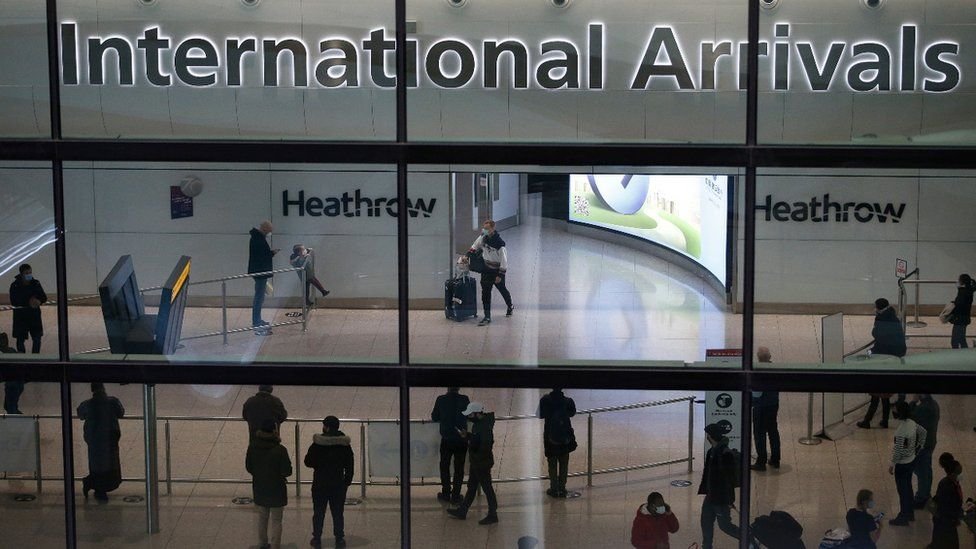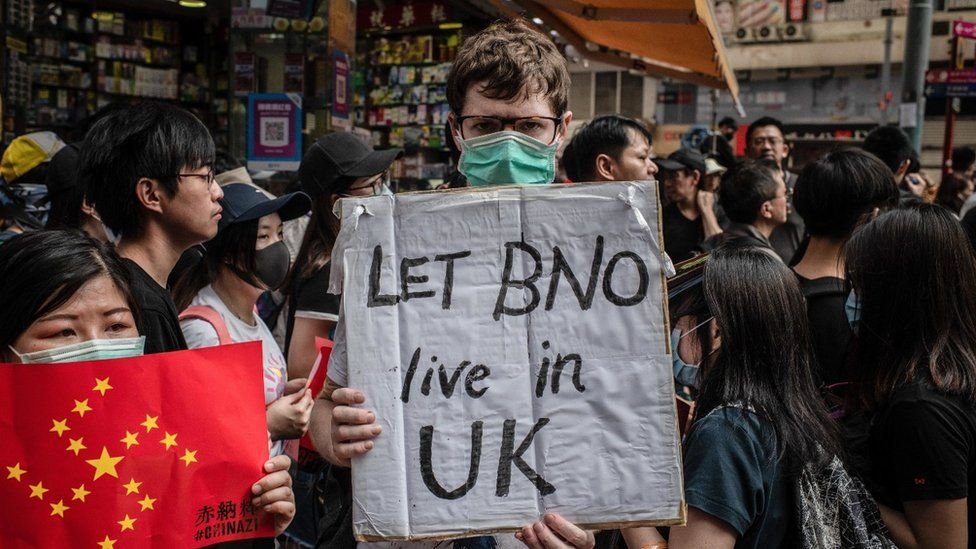
UK BNO visa: Can Hong Kong residents now live in the UK?
It also provides them with a route to British citizenship.
How does it work?
British National Overseas (BNO) citizenship is a type of British nationality created in 1985 that people in Hong Kong could apply for before the 1997 handover to China to retain a link with the UK.
The lifelong status, which cannot be passed down to family members, did not give holders any special rights.
It meant only they could visit the UK for six months without a visa.
But the new system, in place from 31 January 2021, allows these BNO citizens and their close family to apply for two periods of five years to live and work in the UK.
After the first five years, they are able to choose to apply for indefinite leave to remain, which means an individual can live and work without reapplying for a visa.
And after one year of this status, individuals are able to apply for British citizenship.

How many people are expected to come?
The British government estimates 5.4 million Hong Kong residents are eligible for the scheme, that's about 72% of its 7.5 million population.
These include:
* 2.9 million BNOs
* 2.3 million dependents of BNOs
* 187,000 18-23-year-olds with at least one BNO parent
It is difficult to say how many eligible people will actually come to the UK.
A government report published last year put the number of people expected to take up the offer at about 300,000 in the first five years.
How much will it cost?
Applicants have to buy a Hong Kong BNO visa.
Individuals can pay:
* £180 to apply to stay for two and half years, which can then be extended by another two and a half years for a further £180
* £250 to apply to stay for five years
But BNOs and their family also have to pay the international health surcharge (IHS) to use the NHS - £624 a year for an adult and £470 a year for a child.
And applicants also need to prove they can support themselves and dependents financially for the first six months of their stay.
Why is the UK doing this?
Hong Kong was handed from the UK to China under the Sino-British Joint Declaration agreement, which said the communist country would respect the territory's capitalist system and rule of law for 50 years, an arrangement known as "one country, two systems".

But in June 2020, China's parliament imposed a severe security law on Hong Kong, following months of protest and unrest in reaction to a proposed extradition law.
And the UK government was among those who said it "restricts the rights and freedoms of the people of Hong Kong and constitutes a clear and serious breach of the Sino-British Joint Declaration".

What does China think?
China has consistently said the affairs of Hong Kong are a domestic issue and nothing to do with the UK.
Its government announced that from the end of January, it would no longer recognise BNO passports as valid travel or identity documents, adding that it would "reserve the right to take further measures".
It's not clear what impact this will have as Hong Kong residents can use other documentation to enter mainland China, and wouldn't normally need a BNO passport.
The only time they might use a BNO passport is upon arrival in the UK or another country that recognises the document.











